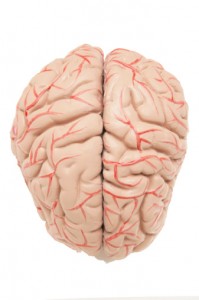
Just because people are getting older and memory doesn’t always serve them as well as a young brain would, does not necessarily mean that they will develop Alzheimer’s at any severity or even at all. There are several ways of maintaining and regulating normal brain activity thus reducing the risk of the cognitive disorder.
Even simple things such as walking or participating in regular physical activities, maintaining an active social life and challenging the brain with new mental stimuli, will encourage the generation of new brain cells, new neuronal patterns and better chemical activity. Doctors, researchers and scientists all suggest that playing games, engaging in brain teasers or even learning a language can help “rewire the brain” and rectify memory loss. The same way in which people who have been on crutches for a while needs physiotherapy, the brain needs to be active in order to be able to function and function well. Cardiovascular activity such as aerobics, has also been proven to significantly cut down the risk of dementia and other memory loss conditions as well as balance exercises such as tai chi and yoga.
Leading neuroscientist Michael Merzenich explains in his blog that even an activity such as driving is an important stimulant for the brain “The couch potato life in an environment in which everything is in its place and life is virtually devoid of surprises is just not enough for body and brain. Our brains and bodies have been constructed for ACTION. Passivity just doesn’t cut it!”. He continues “ it is the kind of action that requires you to really engage the frontal lobes of your brain (life’s natural anti-depressant medicine) and to challenge you in ways that engage the learning brain away from the physically and mentally non-challenging environment that most people have created in their homes”. He also stresses that in the event that someone is house bound and unable to be physically active, “it is even more important to bring mental stimulation into the home”.
From such studies “aging paragons”, as conducted by Michael and other neuroscience professionals as we can clearly conclude that no matter what the age we are or what physical limitations life throws in our way, keeping mentally active is important in the prevention of memory loss and other limiting brain conditions. As the comparative analysis study shows, simply being passionate about something in life helps reduce typical old age signs such as impaired memory.
Conclusions from such scientific research and observations as mentioned above, clearly demonstrates that people who have led sedentary lifestyles, and do not regularly engage their brain in social, sporting or challenging activities are far more likely to develop a cognitive degenerative disease than others who do. High cholesterol and blood pressure levels, also stemming from a combination of bad diet and lack of exercise along with a generous helping of stress, affect our brain by slowing down the absorption rate of nutrients through the blood brain barrier and need to be monitored regularly. Even someone in their early 20s or 30s can develop high cholesterol and high blood pressure.
Our diet however, requires even more attention than our physical fitness. The brain works just the same way as the rest of body and needs to maintain a well-balanced chemical make-up. If the level of chemicals such as Omega 3, which fuel our brain and help to regulate the neurotransmission of brain signals, begin to diminish, it makes it easy to understand how brain cell activity in turn begins to dwindle, the brain shrinks and memory cells are lost.
Eating certain foods however, that are known to contain the particular chemical substances that our brain can feed from, is of course beneficial in encouraging cell growth. The Brain needs energy just as like any organ so imagine what happens we start to drain that energy. Research has proven that although consuming polyunsaturated fats will not cure a neuronal disorder, it can significantly reduce levels of memory loss and attention deficit and even prevent the onset of them. Try also, to decrease the intake of refined carbohydrates, which rapidly spike glucose levels and cause unnecessary inflammation in the brain.
Such brain healthy foods are those rich in omega 3 such as fish, nuts, whole grains, and olive oil and fresh produce. Apples in particular contain great antioxidant qualities and Tufts University research studies concluded that the flavonoid compounds in berries are also offer great anti-inflammatory properties.
Compounds called flavonoids found in fresh fruit and vegetables are equally as important, needed in order to protect against neurotoxins and promote memory and learning ability.
Folic acid, vitamin B12, vitamin D, magnesium, and fish oil are great stimulants for brain productivity. Even the odd glass of wine such as the Mediterranean diet suggests, is good for you, although excess drinking or binge drinking will have adverse effects. Research conducted at Miami’s Mt. Sinai Medical Center showed that stopping the consumption of both alcohol and tobacco reduced any display of Alzheimer’s type symptoms by almost up to 4 years. Further studies have also shown that smoking can compound alcohol-fueled brain damage by preventing proper blood circulation and absorption of nutrients.
Keep your brain cells stimulated. Both mental and social stimulation have been proven to significantly reduce the risk of cognitive diseases. Regularly learning something new, interacting with other people and presenting yourself new challenges, will stimulate intercellular connections and create new pathways. Even activities such as brainteasers, puzzles, riddles and problem solving exercises are great “mental aerobics”.
Getting enough rest and developing a routine sleeping pattern is also important. The Brain needs to rest and refuel. Sleep deprivation encourages irritability, the inability to think clearly or react quickly and inhibits problem-solving skills. Try to avoid napping in the afternoon in order to get a decent night’s sleep or if a nap is really needed, make sure it is earlier rather than later in the afternoon.
While keeping active, getting good sleep and eating healthy, also ensure you are fulfilling your social scene. Humans are naturally social animals and studies in have demonstrated considerable cognitive improvement following social sessions.
Despite the fact that there is no known cure for cognitive degeneration, treatments to reduce symptoms and prevent the risk are plentiful. With the discovery of Brain SPECT imaging it is also possible to diagnose any areas of concern before they become too severe to be able to rectify and Dr. Amen, one of the foremost experts on brain imaging science, can’t stress enough, the importance of getting checked early on in order to highlight any areas of concern.
All in all, leading a balanced lifestyle and following the simple 6 pillars of health: eating healthily, sleeping well, relaxing and managing stress, leading an active social life, applying mental stimulation and engaging in physical activity have all been proven to apply to reducing impaired neurofunctionality. Lowering the risk and even preventing the onset of Alzheimer’s and other mental conditions is therefore more of a lifestyle commitment rather than a mad dash to get to in position at the starting line. It is worth remembering that our actions in earlier years can have a lasting effect and although are often concerned about our liver or our heart, we tend to forget that our brain needs extra special care.
We have a new recommendation for Brain Health Supplements. Click here for more information.


Leave a Reply
You must be logged in to post a comment.